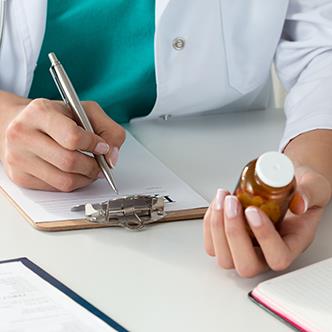
If you struggle with high blood pressure, you may want to check your medicine cabinet in addition to being physically active and eating right. That’s because a new study, presented virtually at the American College of Cardiology’s 70th Annual Scientific Session, found that nearly 1 in 5 adults with high blood pressure are also taking a medicine that could be making it worse.
The results are a good reminder to routinely review a complete list of the medications that you take with your care team – including any over-the-counter drugs and supplements – to make sure none could be interfering with blood pressure lowering
efforts, the researchers said. This is especially important for older adultswho are more likely to have high blood pressure and use multiple medications.
Which medications are the most likely culprits? Based on the study findings, the three most common classes of medications were antidepressants; nonsteroidal anti-inflammatory drugs (NSAIDs) that include ibuprofen and naproxen; and oral steroids used
to treat conditions such as gout, lupus, rheumatoid arthritis or after an organ transplant. Other medications associated with blood pressure elevation were also reported, including antipsychotics, certain oral contraceptives and popular decongestants.
These findings raise concerns, according to the researchers, especially as nearly half of Americans diagnosed with high blood pressure do not have it sufficiently controlled. The goal for blood pressure for people with hypertension is a reading of less
than 130 mmHg over 80 mmHg, based on the 2017 American College of Cardiology/American Heart Association (ACC/AHA) Guideline for the Prevention, Detection, Evaluation, and Management of High Blood Pressure in Adults.
“These are medications that we commonly take – both over-the-counter and prescribed medications – that may have the unintended side effect of raising blood pressure and could have adverse effects on our heart health,” said John
Vitarello, MD, an internal medicine resident at Beth Israel Deaconess Medical Center in Boston and the study’s lead author. “We know that high blood pressure leads to cardiovascular disease, stroke and death, and even small increases
in blood pressure can have meaningful impacts on cardiovascular disease.”
The study examined data from 27,599 participants in the National Health and Nutrition Examination Survey (NHANES) between 2009 and 2018. Of these, about half (49%) had hypertension (average age 55 years, 48% female), which was defined in the study as
having a blood pressure reading of ≥130 mmHg (systolic, the top number) or ≥80 mmHg (diastolic, the bottom number) or ever having been told they have high blood pressure. Researchers identified medications associated with blood pressure elevation
based on those listed in the ACC/AHA guideline and examined use of these medications by adults with hypertension above and below recommended blood pressure goals.
Among participants with high blood pressure, 19% reported using one or more blood pressure raising medications and 4% reported using multiple. Nearly one-quarter (24%) of women with high blood pressure reported using a blood pressure raising medication
compared with 14% of men. Older adults were more likely to be using blood pressure raising medications than younger adults (19% of participants over age 65 vs. 18% of participants under age 65).
Vitarello said the findings suggest that, in some cases, rather than treating high blood pressure with more medications, there may be opportunities to lower blood pressure by deprescribing or substituting safer medications. For example, there may be other
classes of medications to treat the same condition that affect blood pressure less.
The study is limited in that it relies on participants’ self-report of having high blood pressure and an accurate accounting of all the medications they take. The study was funded by the National Institute on Aging.
For resources on managing high blood pressure, visit CardioSmart.org/HighBP.